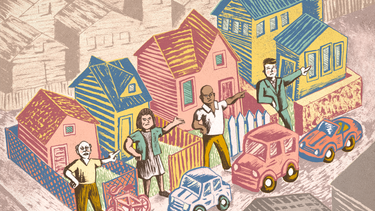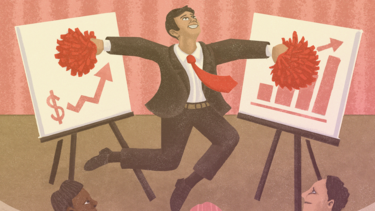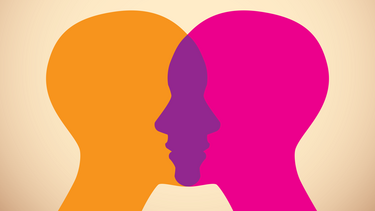Behavioral
Can Holiday Shopping Boycotts Make a Difference?
We asked Yale SOM’s Zoe Chance, an expert on consumer behavior and persuasion, what makes boycotts effective and how companies should respond.

A Key Factor in Well-Being: Others’ Apparent Wealth
Money may not lead to happiness, but according to a new study co-authored by Yale SOM’s Michael Kraus, our perceived wealth and status relative to others does affect how happy we are.

Advice for a Better 2021—According to the Research
We asked faculty with expertise in psychology, entrepreneurship, healthcare, economics, and more for their best ideas to bring the lessons of the last year to the next.

For Holiday Cheer, Switch Off Zoom and Pick Up the Phone
After an extraordinarily difficult year, we are all looking for respite from the isolation and uncertainty of pandemic life. We asked Marissa King, who studies personal and team dynamics, to share some quick tips for making this year’s holiday season a little brighter.

No Matter What We Earn, We Believe Our Richer Neighbors Have More to Give
According to a new study co-authored by Yale SOM’s Gal Zauberman, people of a wide range of income levels believe that they are giving what they should to charity—but that even richer people have more spare income and a greater obligation to give.

How to Keep Your Sense of Purpose While Working Remotely
Yale SOM’s Amy Wrzesniewski, an expert in how people find meaning in their jobs, says that working remotely can diminish our sense of community and structure—and offers suggestions for staying anchored.

Rational Order from ‘Irrational’ Actions
Prof. Shyam Sunder outlines a strain of research, drawing on complexity theory, that suggests that outcomes of a social system can be rational even if its individual participants are not rational.

A Passionate Startup Pitch Is Powerful—But Can Be Misleading
According to a new study co-authored by Yale SOM’s Song Ma, those with cheerful and enthusiastic presentations are more likely to get venture capital funding—and less likely to build successful ventures.

To Reach Weight-Loss Targets, Start with Small Goals
Drawing on data from a weight-loss app, Yale SOM’s Kosuke Uetake and his co-author found that setting small goals and changing them frequently helped dieters reach their long-term goals.

Online and Off, We Are Drawn Toward Those with Similar Writing Styles
Both online and in-person friendships are more likely to develop between people who have similar linguistic styles, according to a new study co-authored by Balázs Kovács at Yale SOM.

We’re More Likely to Stick to Decisions Rooted in Emotions
Should you trust your gut? A new study co-authored by Yale SOM’s Taly Reich finds that decisions made on the basis of feelings hold up longer in the face of new information than decisions made deliberately and rationally.
